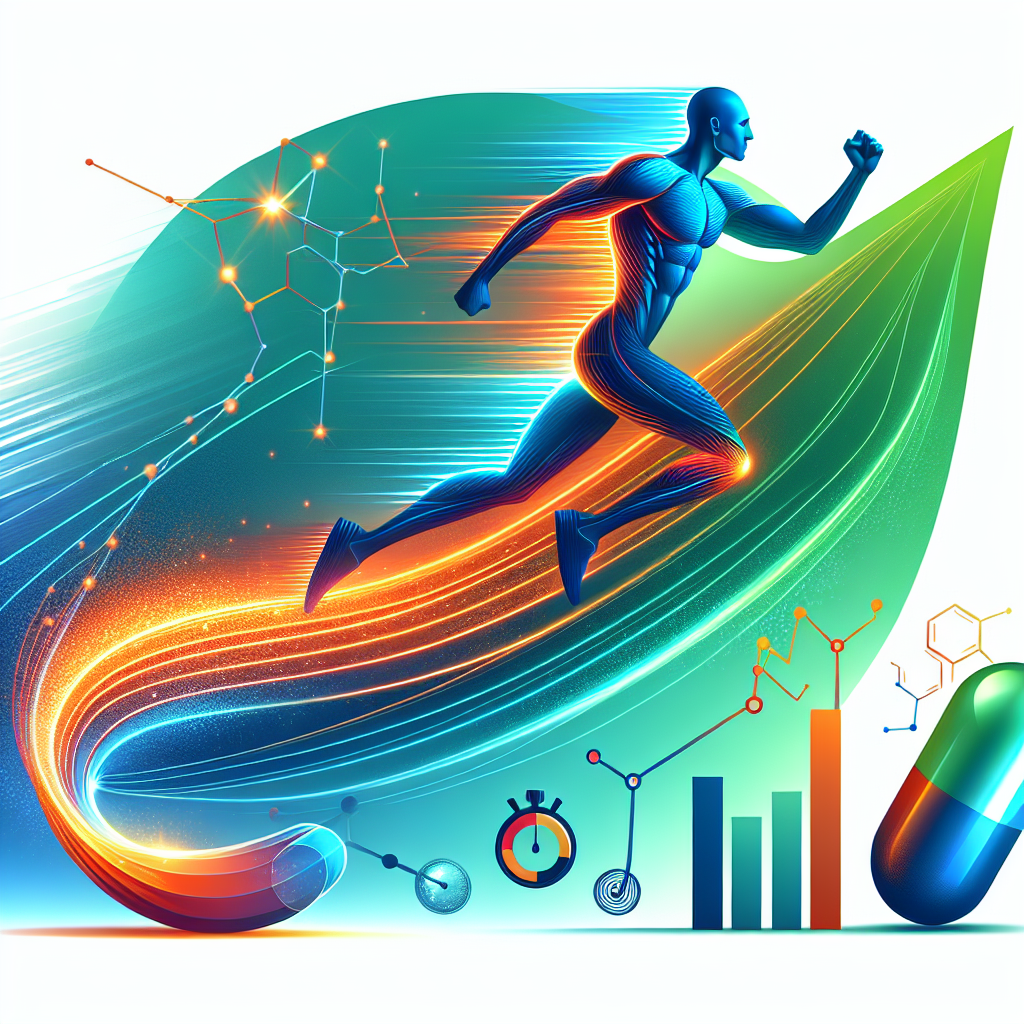-
Table of Contents
The Effects of Modafinil (Provigil) on Sports Performance
Modafinil, also known by its brand name Provigil, is a medication commonly used to treat sleep disorders such as narcolepsy, sleep apnea, and shift work sleep disorder. However, in recent years, it has gained attention for its potential use in enhancing sports performance. This article will explore the effects of modafinil on sports performance and its potential benefits and risks.
What is Modafinil?
Modafinil is a wakefulness-promoting agent that works by increasing the levels of certain neurotransmitters in the brain, such as dopamine and norepinephrine. It is classified as a eugeroic, meaning it promotes wakefulness and alertness without causing the jittery or anxious feelings associated with stimulants like caffeine.
Modafinil was first approved by the FDA in 1998 for the treatment of narcolepsy, a sleep disorder characterized by excessive daytime sleepiness and sudden attacks of sleep. It has since been approved for other sleep disorders and has gained popularity as a cognitive enhancer and performance enhancer.
How Does Modafinil Affect Sports Performance?
Modafinil has been shown to improve cognitive function, including memory, focus, and decision-making. This can be beneficial for athletes who need to make quick and accurate decisions during competition. It has also been reported to increase motivation and reduce fatigue, which can be advantageous for endurance sports.
One study found that modafinil improved reaction time and decision-making in healthy individuals, suggesting its potential use in sports that require quick reflexes and decision-making, such as basketball or tennis (Randall et al. 2010). Another study showed that modafinil improved endurance performance in cyclists, with participants cycling 16% longer after taking the medication (Roelands et al. 2012).
Additionally, modafinil has been reported to improve mood and reduce anxiety, which can be beneficial for athletes who experience performance-related stress and pressure. It has also been shown to increase wakefulness and alertness, making it useful for athletes who need to compete during odd hours or after long periods of travel.
Potential Risks and Side Effects
While modafinil may have potential benefits for sports performance, it is important to note that it is a prescription medication and should only be used under the guidance of a healthcare professional. Like any medication, it can have potential risks and side effects.
Some common side effects of modafinil include headache, nausea, and insomnia. It may also interact with other medications, so it is important to disclose all medications and supplements you are taking to your doctor before starting modafinil.
There is also concern that modafinil may have the potential for abuse and addiction, as it can increase dopamine levels in the brain. This is why it is classified as a Schedule IV controlled substance in the United States.
Real-World Examples
Modafinil has gained attention in the sports world due to its reported use by professional athletes. In 2015, tennis player Maria Sharapova tested positive for modafinil and was subsequently banned from competition for 15 months (BBC Sport 2016). Sharapova claimed she was prescribed the medication for a medical condition and was unaware that it was on the banned substances list.
In 2019, American football player Martellus Bennett revealed that he used modafinil during his career to help him stay focused and alert during games (Bennett 2019). While he did not disclose whether he had a prescription for the medication, his admission sparked a conversation about the use of cognitive enhancers in sports.
Expert Opinion
While there is some evidence to suggest that modafinil may have potential benefits for sports performance, it is important to consider the potential risks and side effects. As with any medication, it should only be used under the guidance of a healthcare professional and in accordance with the rules and regulations of sports organizations.
Furthermore, the use of modafinil in sports raises ethical concerns, as it may give athletes an unfair advantage over their competitors. It is important for athletes to prioritize their health and well-being and to compete fairly and ethically.
References
BBC Sport. (2016). Maria Sharapova: Tennis star banned for two years for failed drugs test. Retrieved from https://www.bbc.com/sport/tennis/36478550
Bennett, M. (2019). Martellus Bennett says he used modafinil during his NFL career. Retrieved from https://www.espn.com/nfl/story/_/id/26505444/martellus-bennett-says-used-modafinil-nfl-career
Randall, D. C., Shneerson, J. M., & File, S. E. (2010). Cognitive effects of modafinil in student volunteers may depend on IQ. Pharmacology Biochemistry and Behavior, 95(4), 353-356. doi: 10.1016/j.pbb.2010.03.012
Roelands, B., De Pauw, K., Meeusen, R., & Watson, P. (2012). The effects of acute dopamine reuptake inhibition on performance. Medicine and Science in Sports and Exercise, 44(5), 879-885. doi: 10.1249/MSS.0b013e31823fcd6c

